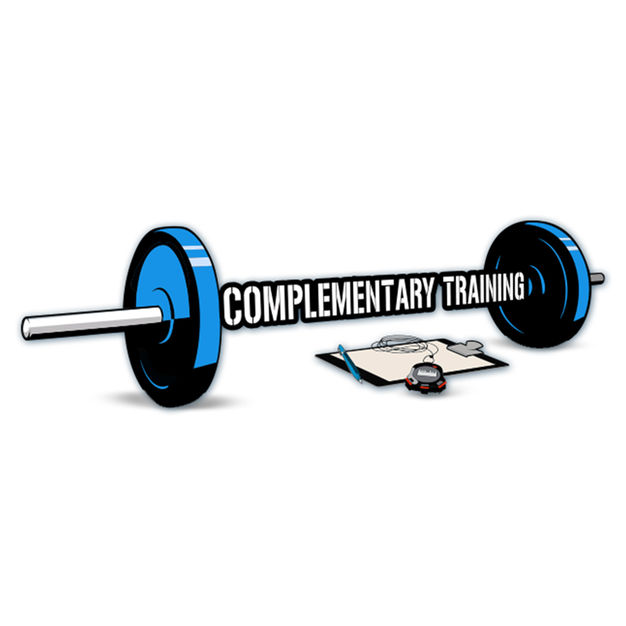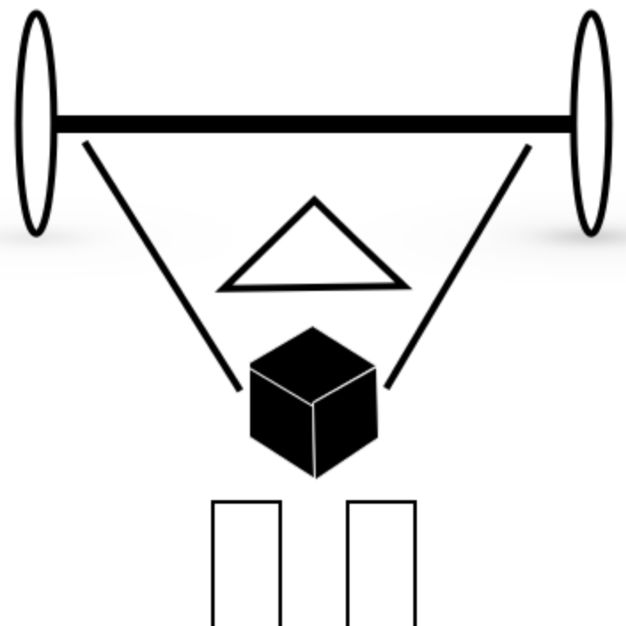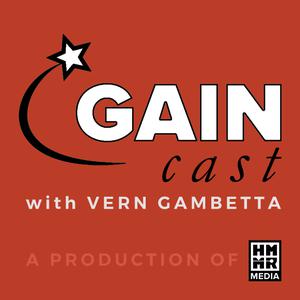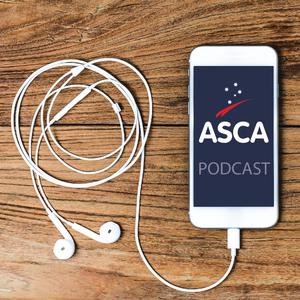
Complementary Training Podcast
complementarytraining
Think tank for coaches, sport scientists, performance analysts and performance directors working in high-performance sport fields and research.
- 59 minutes 35 secondsTraining Chats with Israel & Mladen - Episode #7: Subjective Ratings of Effort, Exertion, Discomfort and Some
I was in the middle of writing the final chapters for my upcoming Strength Manual, and I was explaining Dose - Response models including the subjective ratings, when Israel Halperin sent me a draft version of his upcoming opinion piece on rating of perceived effort. Perfect timing! Reading this made me rethink a few things I wanted to cover, but it also prompted more questions. I wanted to pick Israel's brain regarding ratings of perceived effort and other things, so we have decided to record our conversation into a podcast. Things that were covered in this podcast episode include his motivation for writing this opinion piece, explaining the difference between the various subjective ratings, including force, effort, exertion, discomfort, but also something that both myself and Israel think might be the next big thing – the ratings of pleasure/displeasure by using Feeling Scale. The images below are taken from my upcoming Strength Manual and they might be helpful in order to follow this podcast, particularly my reasoning, which might not represent Israel's reasoning, and I am more than happy to hear your opinions and feedback. I provided a few examples to hypothetically differentiate between different types of ratings and these are all included in the tables below. Once again, please keep in mind that these are sandbox concepts, but I believe they are useful to follow.
Figure 1 Six different theoretical buckets of subjective ratings. They are all interconnected based on the task at hand, expected duration, feedback and so forth.
Figure 2 Figure 2. Three sources of momentary failure and fatigue in general.
Table 1. Hypothetical ratings of RP-Output, RP-Effort, RP-Exertion and RP-Discomfort at the start and at the end of a few speed/power and endurance events. This is highly speculative, but with the illustrative purpose.
Table 2. Hypothetical ratings of RP-Output, RP-Effort, RP-Exertion and RP-Discomfort across set of different characteristics. This is highly speculative, but with the illustrative purpose.
This talk was very insightful, and if you are collecting and/or researching subjective ratings, such as RPE, make sure to give it a listen. If you have any recommendation and feedback, particularly on the implementation of the Feeling Scale, please let us know. Looking forward to hearing your thoughts.
27 May 2019, 9:07 am - 1 hour 11 minutesTraining Chats with Israel & Mladen - Episode #6: Chat with Mike Tuchscherer
In this episode Israel and myself had a pleasure to host a guest speaker - Mike Tuchscherer. I know Mike since around 2007. when he published his (still) outstanding book “Reactive Strength Training”, a book that was the first book to outline usable and concrete strategies of autoregulated training using RPE set ratings. Years passed by and Mike grew up to become one of the most knowledgeable powerlifting coaches in the world.
We decided to have a Mike on the show due his recent articles on emerging strategies in planning and how personalities affect training programming (e.g. “The Big Five”). Besides that, we discussed numerous other topics, so if you are interested in strength training and training in general give this episode a listen.
You can find more about Mike Tuchscherer on his website: Reactive Training Systems and Twitter: @MikeTuchscherer
11 August 2018, 10:40 pm - 50 minutes 41 secondsTraining Chats with Israel & Mladen - Episode #5: Individualization
In this episode, myself and Israel continued discussion on “training individualization” that I have started with the recent screencast - “On Individualization”.
Israel provided an interesting viewpoint from a scientific perspective, which is how “normalizing” groups is hard to do in practice (as I would like to call: “creating equal playing field”, which is the first step in training load individualization).
My current viewpoint is that individualization is more than creating “equal playing field”, or making sure everyone is training at similar individual potential, but rather making sure one is doing what it takes to reach his full potential while avoiding the downsides.
28 July 2018, 7:22 pm - 1 hour 2 minutesTraining Chats with Israel & Mladen - Episode #4: Transfer of Training
In Episode #4 of Training Chats with Israel and Mladen, we discussed the the concept of training transfer. That is, does practicing task 1 transfer to- and improve (or hinder) task 2? For example, will squatting transfer to and improve sprinting performance?
We identified two “camps” of this approach: the first believes that strength training should be non-specific with the goal of improving underlining qualities, such as strength, which will then carry over to the the task it is expected to improve (e.g. sprinting).
The second approach believes strength training should should mimic the metabolic and mechanical features of the task which it is expected to improve. We agreed that it is safe to be somewhere in the middle and utilize both approaches. We also briefly touched the concept of transfer in combat sports (e.g. punching with dumbbells, steady state running, met-cons, and more)
13 July 2018, 1:12 pm - 50 minutes 51 secondsTraining Chats with Israel & Mladen - Episode #3: Phase Potentiation in Periodization
In Episode #3 of Training Chats with Israel and Mladen, we discuss the the concept of phase potentiation in periodization. That is, does sequencing periods that place greater emphasis on certain qualities (strength, speed, etc) in a particular order lead to better performance compared with different sequences and/or without a specific emphasis on a particular quality.
This is an important topic as the core of periodization models lays within this concept. We also touched the problems with simplistic reasoning attempting to explain the positive effects commonly observed with resistance training.
30 June 2018, 2:30 pm - 44 minutes 16 secondsTraining Chats with Israel and Mladen - Episode #2: Evidence Based Practice
In Episode #2 of Training Chats with Israel and Mladen, we continued our discussion on evidence based practice. Israel covered some of the history behind the term and movement, and shared his thoughts as to how it can be used in our profession. We spoke about combining evidence from scientific literature, our expertise and experience, current context and athlete preferences to make the best (or least worst) decisions with our clients. Mladen spoke about decision making in uncertainty, different branches of rationality (bounded and unbounded) and how one can use heuristics and ‘barbell strategy’ to make decisions in uncertain conditions.
Books mentioned in this episode:
- The Book Of Why - Jude Pearl
- Statistical Rethinking - Richard McElreath
- Philosophy of Evidence Based Medicine - Jeremy Howick
16 June 2018, 11:13 pm - 36 minutes 9 secondsTraining Chats with Israel and Mladen - Episode #1: Introduction
Israel Halperin and myself are starting a new series of podcasts covering coaching, training, and sport science while emphasizing the complexity and uncertainty involved in the exercise professions. We plan on publishing 30-40 min episodes every two weeks on various topics and hopefully host different experts and coaches.
In today’s episode we covered the idea behind the project and free flowed a bit. We also covered Israel’s background, how he plans his Muay Thai sessions (from uncertainty perspective), and began discussing the possible problems associated with placing too much confidence in scientific outputs. We agreed that the focus of the next episode will deal with Evidence-Based Practice. Stay tuned.
Books mentioned in this episode:
3 June 2018, 11:14 am - 3 minutes 21 secondsBeep Test 20m with COD Correction - Audio Sample
IT IS FINALLY HERE – The Shuttle Run Beep Test with COD (changes of direction) corrections!
What does this mean?It means that the score (MAS, or maximum aerobic speed) reached in the COD corrected beep test can now be used in both long distance and shuttle based conditioning.
The shuttle run beep tests so far didn’t implement corrections for CODs, and have used exact beeps from straight line version of the test (UMTT or VamEval), which resulted in lower MAS score.
5 August 2017, 12:37 pm - 1 hour 37 minutesComplementary Training Podcast #11: Interview with Israel Halperin
In episode eleven of Complementary Training Podcast I am talking to Israel Halperin. Israel is a PhD candidate and Muay Thai coach from Tel-Aviv, Israel, who I’ve met in Canberra while he was with Australian Institute of Sport.
Israel is someone with the skin in the game, to paraphrase Nassim Taleb. Someone who has walked the walk as a Muay Thai fighter, and continues to do so by training competitive athletes in Muay Thai and Boxing, as well as doing his PhD. Hence, he is the guy who can talk two languages – coach language and researcher language. I believe his is a true gem in this field.
In the following episode, we have discussed numerous topics, ranging from agile periodization, confounders in training research, dealing with uncertainty and many others. The format was more of a casual chat of two friends, which we are, rather than an interview. I am pretty sure it will make you think.
Before we switch to the chat with Israel, I want to thank our sponsor Smartabase for making this episode possible. Enjoy the listening.
You can reach Israel through his twitter @Israel_Halperin and through his Research Gate.
20 December 2016, 11:49 am - 49 minutes 8 secondsComplementary Training Podcast #10: Interview with Sam Robertson
In episode ten of Complementary Training Podcast I am talking to Sam Robertson. Sam is Senior Research Fellow at Western Bulldogs (AFL) & Victoria University.
We touched about the role of machine learning/predictive analytics in sports (especially injury prediction), “novel” techniques, and how to establish data/sport science department.
Sam is a true leader in the field and someone that has the “skin in the game”– working in a high profile AFL club as data scientist. So I highly recommend listening to this podcast if the topic of data science and data driven decision making is of your interest.
Sam can be contacted through his Twitter @Robertson_SJ
Enjoy!
28 September 2016, 1:09 pm - 1 hour 28 minutesComplementary Training Podcast #9: Interview with John Kiely
In episode nine of Complementary Training Podcast I am talking to John Kiely. John is mostly famous for his critiques of periodization (which are a must read papers), so I used this opportunity to expand on that particular topic.
Here are some must read articles from John:
- Periodization, Planning, Prediction: And why the future ain't what it used to be!
- Periodization Paradigms in the 21st Century: Evidence-Led or Tradition-Driven?
- New Horizons for the Methodology and Physiology of Training Periodization: Block Periodization, New Horizon or a False Dawn? [1]
- New horizons for the methodology and physiology of training periodization: Block periodization: New horizon or a false dawn? [2]
- MINI REVIEW Uniqueness of Human Running Coordination: The Integration of Modern and Ancient Evolutionary Innovations
- A genetic-based algorithm for personalized resistance-training
- Essay: A New Understanding of Stress and the Implications for Our Cultural Training Paradigm
We have covered a lot of ground in this podcast! If there are any topics you want John to cover in more detail, let us know and we will expand on it. He can be reached via his Twitter @simplysportssci.
I highly recommend following John if you are interested in up-to-date sport science information.
Enjoy!
14 September 2016, 8:46 pm - More Episodes? Get the App
Your feedback is valuable to us. Should you encounter any bugs, glitches, lack of functionality or other problems, please email us on [email protected] or join Moon.FM Telegram Group where you can talk directly to the dev team who are happy to answer any queries.
 CVASPS Podcast, Strength and Conditioning Info From The Worlds Top Sport Performance and Physical Preparation Practitioners
CVASPS Podcast, Strength and Conditioning Info From The Worlds Top Sport Performance and Physical Preparation Practitioners
 Athlete Development
Athlete Development
 GAINcast with Vern Gambetta
GAINcast with Vern Gambetta
 Athletic Lab Audio Inventory
Athletic Lab Audio Inventory
 ASCA Podcast
ASCA Podcast
 HMMR Podcast
HMMR Podcast